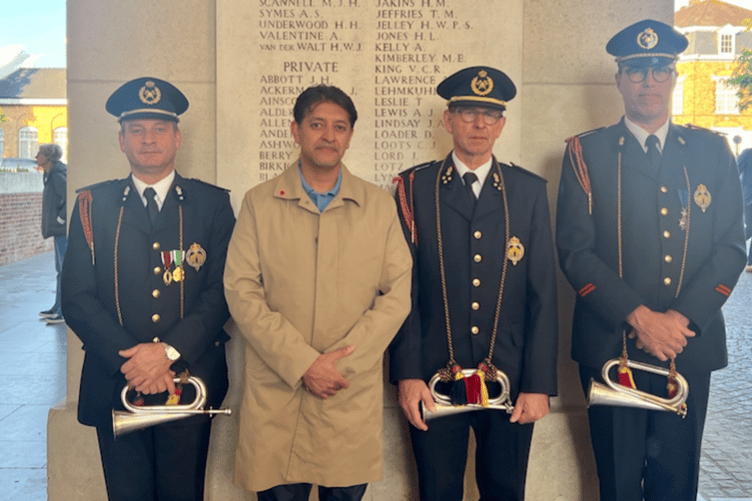As we gathered this Remembrance Sunday to honour those who gave their lives for our freedom, I was reminded of a recent visit to the Menin Gate Memorial to the Missing in Ypres, Belgium, one of the world’s most moving and significant war memorials.
Designed by Sir Reginald Blomfield and unveiled in 1927, the Menin Gate stands at the eastern entrance to Ypres, the route along which countless Allied soldiers marched to the front line during the First World War. Inscribed upon its vast white walls are the names of 54,577 servicemen from Commonwealth nations who died in the Ypres Salient and have no known grave, including 40,500 from the United Kingdom.
Soldiers from The Queen’s (Royal West Surrey) Regiment, then based in Guildford, and from the Welsh Regiment stationed at Bordon Camp, fought and gave their lives for our freedom, as did men from across the Commonwealth, including India. Each name represents a life cut short, a family left grieving, and a sacrifice made in defence of shared ideals.
To stand beneath that great arch, hearing the Last Post echo each evening as it has since 1928, is to feel the weight of history and humanity intertwined. Among those commemorated are soldiers from India, men who crossed oceans to fight for freedom in a distant land. Among those who fought for Britain are my own ancestors. Their courage, and that of so many others, is a reminder that remembrance transcends borders, race, faith and generations.
On Remembrance Sunday, 10,000 armed forces veterans took part in the Royal British Legion’s march-past through Whitehall, alongside around 20 World War Two veterans. As King Charles III led two minutes’ silence, we remembered those who never came home from war, and those who did, carrying scars both visible and unseen. We honour their service by ensuring that the peace they fought for endures, and that our commitment to veterans and their families remains steadfast.
But true remembrance is not passive. It calls on us to uphold the peace so many died to secure, by defending the international laws, human rights conventions and treaties created to protect us from injustice, division and the horrors of war. These frameworks, and the national laws that followed, were born out of the suffering of two world wars and remain the safeguards of our shared humanity. They are also the legacies of those fallen soldiers.
To forget their value, or weaken our commitment to them, would be to forget the very lessons for which generations sacrificed their lives.
The poppy so many of us wear is both a symbol and a promise — that we will remember them and their legacies in gratitude, in service, and in the peace for which they gave their all.
Let us never forget.




Comments
This article has no comments yet. Be the first to leave a comment.